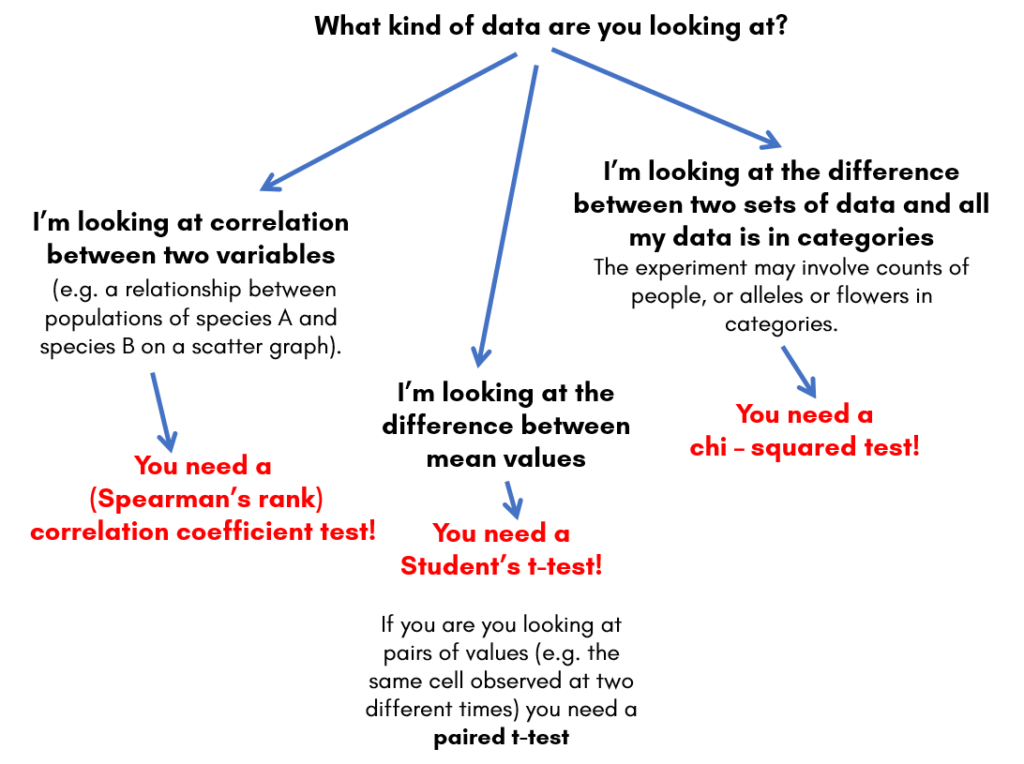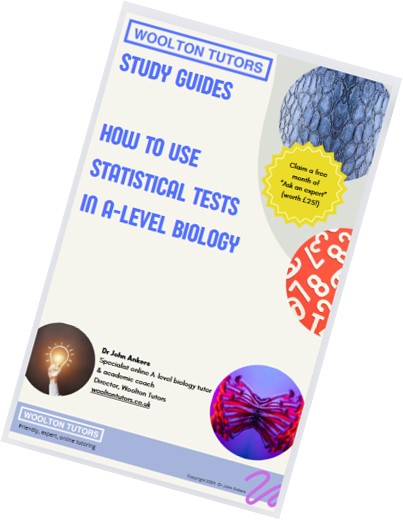Matching the mark schemes in A-level biology can be frustrating. Often students say “I just don’t know what the question is asking for”, or “I keep missing out on full marks”. Here are some tips on how to avoid losing marks in A-level biology exams and focussing on your exam technique.
Go further with the question’s command word
When answering a question, notice the number of marks available – these are the number of points you should make in your answer. If you’re missing something, focus on the command word – describe, explain etc. – and let yourself go into more detail. It’s a “describe” question? Describe in more depth what the graph shows. For an explain question, go further into the explanation of the science. The key is to see what the question wants and dive deeper into the detail.
Nothing is “too obvious”
Students often say “I didn’t write that because I thought it would be too obvious”. Say the obvious thing! Students, often the brightest ones, often miss the first or last marks in a mark scheme answer because they think the examiner already knows this information. Yet these are the marks where you tie your answer to the question. Always complete your thoughts even if it’s as simple as saying “so photosynthesis increases” or “so the plant would die.”
Use the correct terminology
Examiners often want to see you use the correct A-level terminology – this means “hydrolyse” instead of “break down”. Energy is “transferred” not made. When a substance moves, does it actually “diffuse”? Maybe it’s “actively transported”. Complementary is a great word – you can use it whenever two shapes are matched – enzymes and substrates, antibodies and antigens, complimentary nucleotides…
Avoid using “it” in your answers – either say the name of the protein, chemical or species you mean or use another noun to help free up your writing – perhaps – process, relationship, variable, data (plural) or “piece of data”.
Spot your patterns
Analyse your last mock exam paper – are you missing marks from an entire question? This might suggest an area of knowledge needs improving. Or are you missing single marks that mount up? Rather than lack of knowledge, this suggests you may not be completing your answers, or missing terminology. It might be that some of the tips above will help. The key is to communicate clearly.
Perhaps a one-to-one tutoring session with me leading up to the exams might give you a boost?
You can also take a look at some of my other blogs on evaluate questions, describe and explain questions and application questions.
Good luck!
 There’s much more help with exam questions in our shiny eBook available in our shop. A purchase from our shop gives you a month’s free subscription to “ask an expert” – very useful for some exam practice 🙂
There’s much more help with exam questions in our shiny eBook available in our shop. A purchase from our shop gives you a month’s free subscription to “ask an expert” – very useful for some exam practice 🙂
If you’d like to work through some A-level biology statistics questions, from exam boards like AQA, please get in touch with me at Woolton Tutors, and we can set up some online A-level biology tutoring sessions. Alternatively, AQA students might be interested in my weekly A-level biology masterclass sessions for practice on exam technique.
Best wishes,
John
Dr John Ankers
Specialist online A-level biology tutor and academic wellbeing coach















